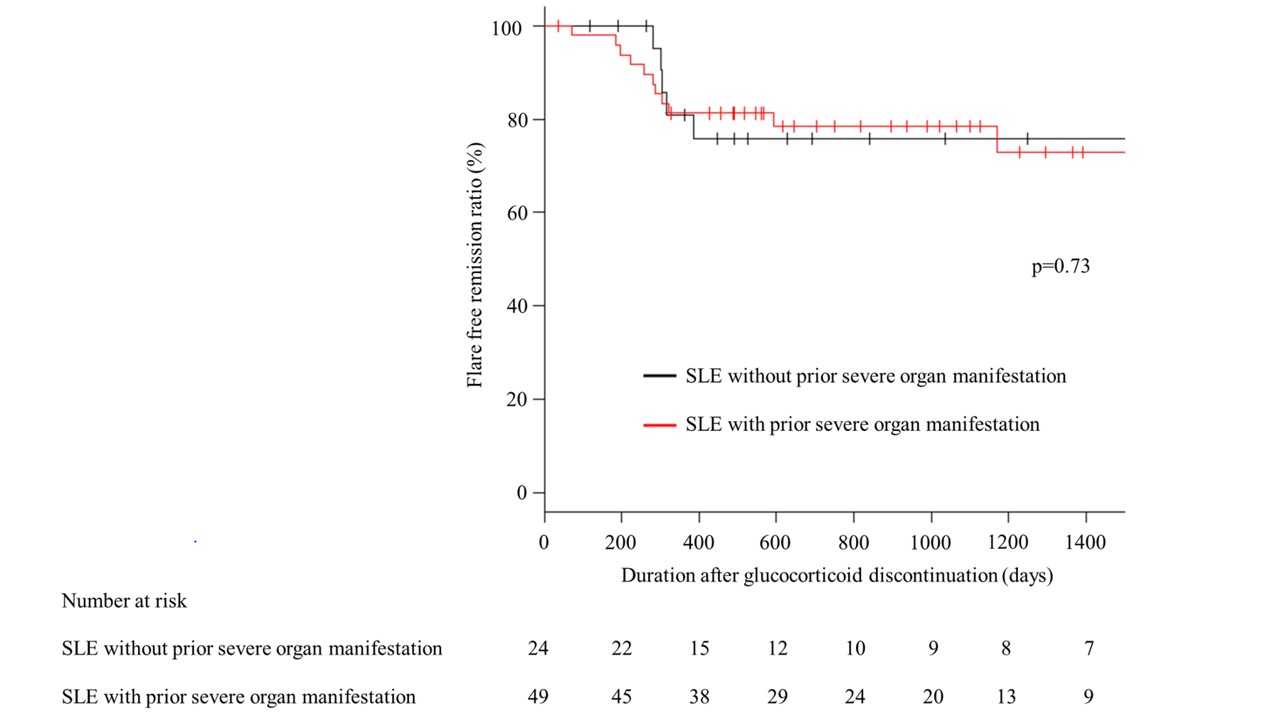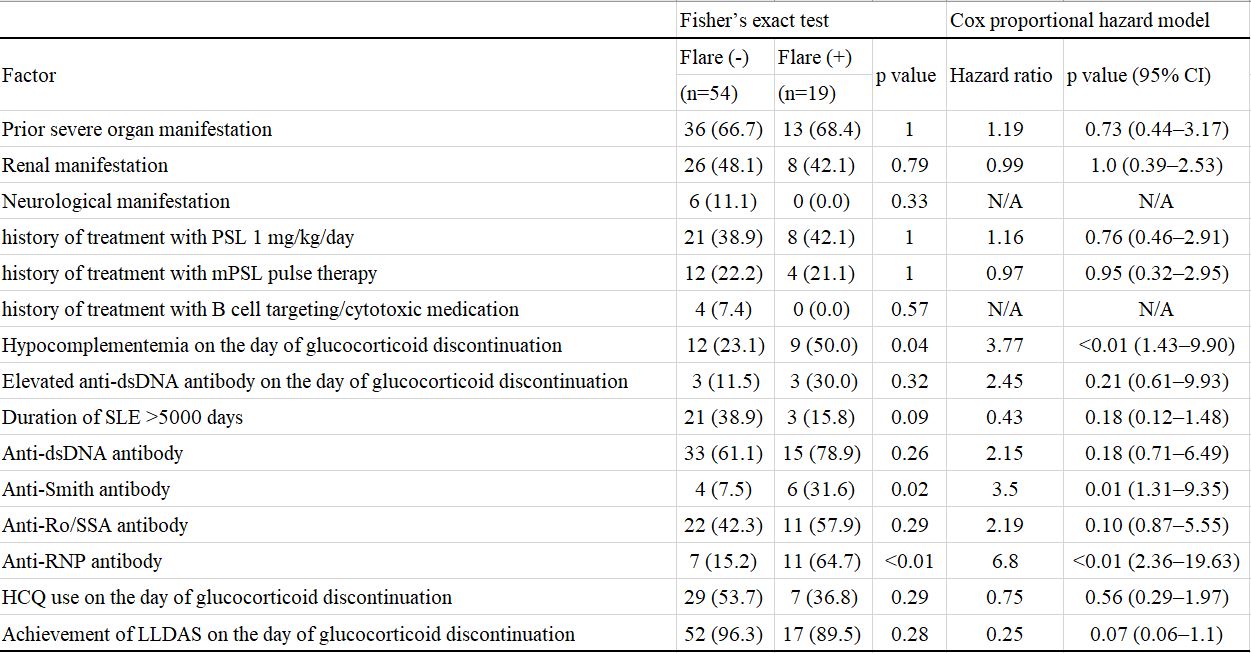Session Information
Session Type: Poster Session D
Session Time: 8:30AM-10:30AM
Background/Purpose: Most long-term damage in systemic lupus erythematosus (SLE) has been attributed to continuous glucocorticoid use; however, glucocorticoid discontinuation is occasionally associated with disease flare-ups. Therefore, we evaluated the risk factors for disease flares and flare rates with gradual glucocorticoid tapering, especially in patients with prior severe organ manifestation.
Methods: Patients with SLE who had their glucocorticoid doses tapered off at our institute were retrospectively analyzed. We divided the patients according to the presence of prior severe organ manifestations and compared the 52-week flare rates after glucocorticoid discontinuation. Furthermore, risks/protective factors against flares after glucocorticoid cessation were investigated.
Results: In total, 309 patients with SLE were followed up; 298 had prednisolone tapered to less than 7.5 mg/day and 75 had glucocorticoids discontinued. Seventy-three patients met the inclusion criteria; 49 were classified as SLE with prior severe organ manifestation. No statistical differences were noted in the 52-week flare rate and time to first flare after glucocorticoid discontinuation between patients with and without prior severe organ manifestation (52-week flare rate: 16.7% vs. 18.2%, p=1.0; time to first flare: 322 [280, 1169] vs. 385 [304, 2345] days, p=0.33). A positive anti-Smith/anti-ribonucleoprotein antibody negatively influenced flare-free remission. Although this result was not statistically significant, the achievement of lupus low disease activity state (LLDAS) on the day of glucocorticoid discontinuation positively influenced flare-free remissions after glucocorticoid discontinuation.
Conclusion: Glucocorticoid discontinuation can be achieved in patients with SLE with prior severe organ manifestations. Achievement of LLADS is key for reaching flare-free remission after glucocorticoid discontinuation.
 Kaplan-Meier curve for flare free remission rate after glucocorticoid discontinuation
Kaplan-Meier curve for flare free remission rate after glucocorticoid discontinuation
 Risk factors for flares after glucocorticoid discontinuation
Risk factors for flares after glucocorticoid discontinuation
To cite this abstract in AMA style:
Nakai T, Iwata F, Kidoguchi G, Fukui S, Ozawa H, Kawaai S, Ikeda Y, Koido A, Suda M, Nomura A, Tamaki H, YAMAGUCHI K, Okada M. Glucocorticoid Discontinuation in Patients with Systemic Lupus Erythematosus with Prior Severe Organ Manifestation [abstract]. Arthritis Rheumatol. 2021; 73 (suppl 9). https://acrabstracts.org/abstract/glucocorticoid-discontinuation-in-patients-with-systemic-lupus-erythematosus-with-prior-severe-organ-manifestation/. Accessed .« Back to ACR Convergence 2021
ACR Meeting Abstracts - https://acrabstracts.org/abstract/glucocorticoid-discontinuation-in-patients-with-systemic-lupus-erythematosus-with-prior-severe-organ-manifestation/
